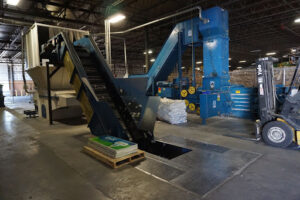If your business makes or sells physical products, you can’t afford to neglect the Consumer Product Safety Act. Manufacturers, importers and retailers have obligations under the law. It’s been on the books for more than 50 years, but many business owners are probably unclear about exactly what the law requires of them. Penalties for violations can be huge, to say nothing of the consequences that could follow from making or selling a product that harms a customer. Familiarize yourself with what the Consumer Product Safety Act requires in terms of safety standards and destruction of defective products, to ensure your business stays in compliance.
Background on the Consumer Product Safety Act
 The Consumer Product Safety Act was enacted in 1972. The Act created the U.S. Consumer Product Safety Commission and gave it regulatory authority to protect the public from injury or death caused by consumer products. The CPSC creates safety standards for manufacturers and retailers, conducts research about product safety and implements recalls/bans of unsafe products. The vast majority of products sold in the U.S. fall under the CPSC’s authority, with the exception of things that are governed by other federal agencies. (For example, vehicle safety is covered by the Department of Transportation and the Food and Drug Administration oversees the safety of food, drugs and cosmetics.)
The Consumer Product Safety Act was enacted in 1972. The Act created the U.S. Consumer Product Safety Commission and gave it regulatory authority to protect the public from injury or death caused by consumer products. The CPSC creates safety standards for manufacturers and retailers, conducts research about product safety and implements recalls/bans of unsafe products. The vast majority of products sold in the U.S. fall under the CPSC’s authority, with the exception of things that are governed by other federal agencies. (For example, vehicle safety is covered by the Department of Transportation and the Food and Drug Administration oversees the safety of food, drugs and cosmetics.)
The original Consumer Product Safety Act was expanded by the Consumer Product Safety Improvement Act (CPSIA) of 2008. The CPSIA modified the original law in a number of ways. It created much stricter standards for children’s products, including a requirement that all children’s products be tested for compliance with those standards by a third-party lab. It created a requirement for manufacturers and importers of non-children’s products to issue a General Certificate of Conformity, certifying that the product complies with all applicable safety rules. The CPSIA also ramped up enforcement and increased penalties for knowingly violating the Consumer Product Safety Act. Today, the maximum civil penalty is $100,000 per violation. A business that commits a related series of violations can incur a penalty of up to $15 million.
What Are a Business’s Obligations Under the Consumer Product Safety Act?
For manufacturers and retailers, ensuring you maintain compliance with the CPSA—and protect your customers from unsafe products—is an ongoing process that your legal advisors may need to be part of. Having legal counsel help you maintain compliance is especially important if you make or sell children’s products. The CPSC can also answer questions about your specific obligations, depending on the nature of your business.
Generally speaking, however, these are some of your responsibilities under the Consumer Product Safety Act:
- Verify that any products you make, import or sell are properly labeled, if applicable. The CPSC requires that children’s products, art materials and some other types of products be labeled in accordance with specific guidelines.
- If your business makes a new product, verify the product safety and testing requirements that apply before you can bring it to market. The CPSC website provides a “Regulatory Robot” tool to help users find information about specific product types.
- Notify the CPSC of any potentially harmful products. Manufacturers, importers and retailers all have a duty to report any products that are defective in a way that could cause injury, any products that don’t comply with consumer product safety standards and any incidents involving a child choking on a product. Notification must be made within 24 hours of receiving information about a potentially harmful product, and failing to report can result in penalties.
- Destroy any products that are potentially harmful and/or don’t comply with the CPSC’s safety standards. Your business can’t be responsible for putting dangerous products into anyone’s hands, so throwing them away isn’t enough. Best practice is shredding off-spec or defective products to ensure they don’t enter the black or gray markets for resale.
- Destroy any products that have been recalled by the CPSC. If you’re a retailer that has recalled products in your store, check with the manufacturer for specific instructions on whether you should return products to them for destruction or if they will cover the cost of having your local destruction service shred them. If you’re the manufacturer that made the recalled product, you have an extensive list of CPSC obligations to meet, including providing verification to the CPSC that all recalled products have been destroyed.
Need Help Complying with the Consumer Product Safety Act?
Trust Northeast Data Destruction with any potentially harmful or off-spec products your business needs to destroy for Consumer Product Safety Act compliance. Our powerful shredders can rip materials like leather, plastic and metal into tiny shreds so your unsellable products are completely and permanently destroyed in minutes. We’ll provide a Certificate of Destruction as verification when the job is done, and responsibly dispose of shredded materials in partnership with our sister company, Miller Recycling.
Have questions about shredding off-spec or recalled products? Contact me today!
